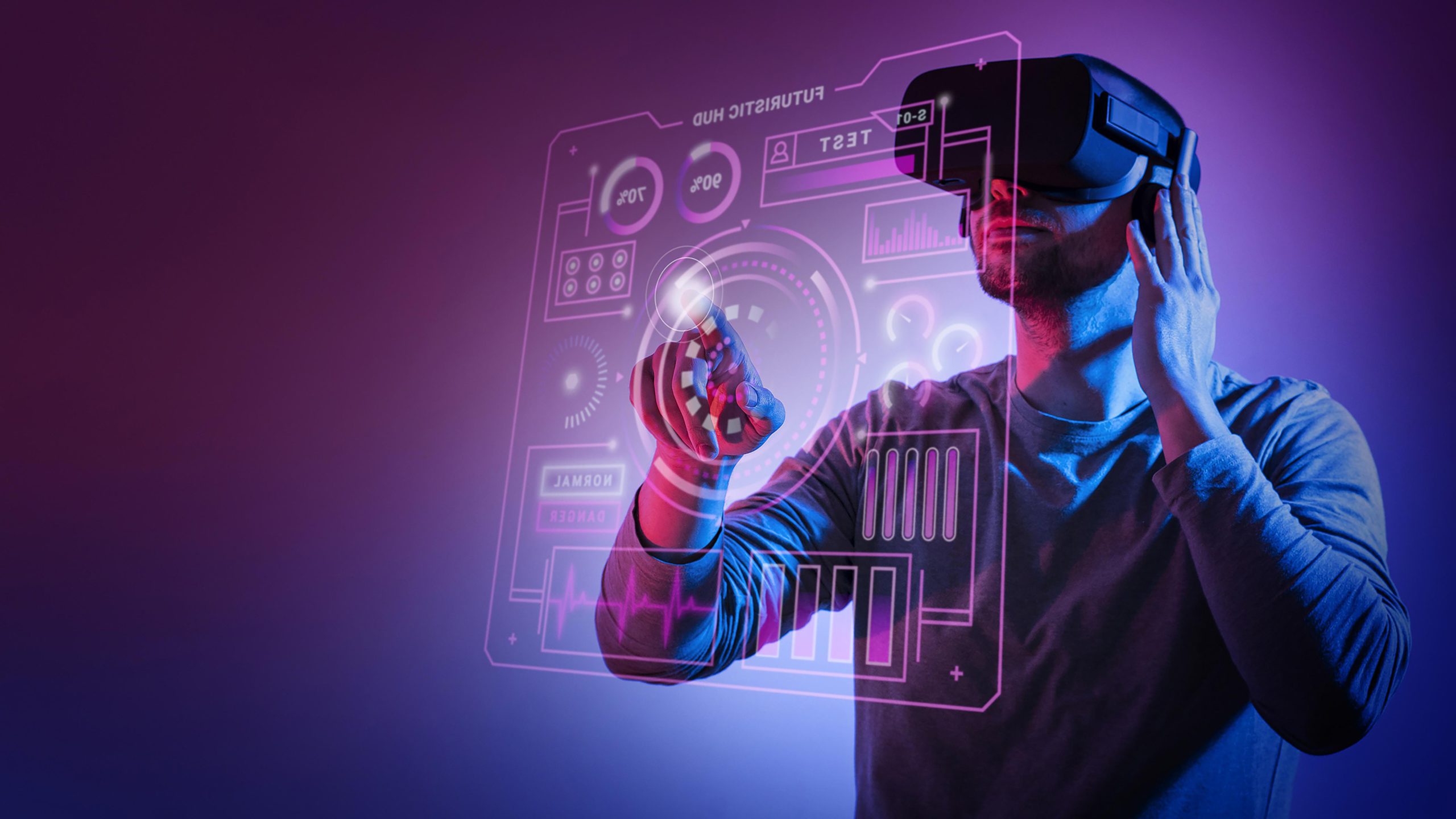Imagine a world where you can attend a concert on the other side of the globe, practice surgery without stepping foot in a hospital, or collaborate with co-workers in a virtual office — all without leaving your living room. Sounds like science fiction, right? Not anymore! Thanks to the incredible fusion of Artificial Intelligence (AI) with Augmented Reality (AR) and Virtual Reality (VR), this futuristic world is becoming our new reality.
From gaming and entertainment to education and remote work, AI is taking AR and VR to the next level. These technologies are not just about creating cool digital worlds anymore. They’re becoming smarter, more responsive, and more personalized, unlocking experiences we’ve only dreamed of. Let’s discuss today how AI-powered AR and VR are transforming industries and reshaping our lives.
AI: The Secret Sauce for AR and VR Magic
At the heart of this transformation is AI, which brings the “intelligence” to AR and VR. Think of AI as the brains behind the beauty — it enables these technologies to understand and respond to what users are doing in real-time.
In AR, AI helps recognize objects, track movement, and deliver digital overlays that seamlessly blend with the real world. Picture pointing your phone at a restaurant, and AI instantly gives you reviews, menu options, and even suggestions based on your tastes. That’s not just AR — that’s smart AR!
For VR, AI takes immersion to the next level by creating virtual environments that feel alive and reactive. Whether you’re walking through a virtual city or engaging in a virtual meeting, AI ensures that the environment adapts to your actions, making everything feel more authentic and interactive.
AI in Entertainment: Next-Level Immersion
Entertainment has always been a playground for AR and VR, and with AI in the mix, it’s more immersive than ever. In the gaming world, AI is revolutionizing how we interact with non-playable characters (NPCs). Gone are the days of repetitive, robotic NPCs. AI enables these characters to learn from your actions, making each interaction unique. The result? A gaming experience that feels fresh every time you play.
Beyond gaming, the world of virtual concerts and events is booming. With AI, these virtual spaces can now adapt to individual attendees. For example, AI can analyze your preferences and customize your experience, whether that’s changing the lighting at a virtual concert or offering you tailored merchandise. It’s like having your own personal DJ or event planner — but in the digital realm.
Education and Training: Learning in the Future
Education isn’t just about books and lectures anymore. Thanks to AI-powered AR and VR, learning has never been more interactive or personalized. Imagine studying ancient history by virtually walking through a Roman city or learning biology by interacting with a 3D model of the human body. With AI driving these experiences, learning becomes not only hands-on but tailored to your pace and needs.
In professional training, AI-powered VR is making waves. Medical students can now practice complex surgeries in a virtual operating room, with AI providing real-time feedback on their techniques. This allows learners to make mistakes without consequences and receive personalized guidance to improve. Similarly, companies are using AI in VR to train employees, offering simulations that adjust in difficulty based on the learner’s progress, making training sessions far more effective.
Remote Work and Collaboration: The Virtual Office is Here
The rise of remote work has pushed companies to rethink how teams collaborate — and AI-powered VR is leading the charge. Virtual workspaces are becoming more popular, allowing employees to gather in immersive digital environments that feel more like in-person meetings than a simple video call.
In these virtual offices, AI does much more than just create 3D environments. It can analyze meeting data, automate tasks, and even help boost productivity by offering insights based on team interactions. Imagine a virtual whiteboard that doesn’t just display your ideas but organizes them into actionable plans or a virtual meeting where AI facilitates networking by suggesting the right people to connect with. It’s a smarter, more engaging way to work remotely.
The Metaverse: A Digital World Powered by AI
When we talk about the metaverse — the massive, interconnected virtual world where people can socialize, work, play, and create — AI is its backbone. Without AI, this vast digital landscape would be static and predictable. But with AI, the metaverse becomes dynamic and responsive, adapting to its users in real-time.
AI plays a significant role in creating realistic avatars that can mimic human emotions and expressions, making social interactions in the metaverse more natural. Moreover, entire cities, ecosystems, and experiences within the metaverse are being generated and managed by AI, ensuring that the world evolves just as the real one does. From virtual businesses to entire entertainment ecosystems, AI is the silent architect of this exciting digital frontier.
Wrapping Up: The Future is Smarter and More Immersive
As AR and VR continue to evolve, AI is the key ingredient that’s making these technologies more than just a novelty. Together, they’re creating new ways to entertain, educate, work, and explore — and we’ve only just begun to see what’s possible. Whether it’s revolutionizing entertainment with personalized virtual experiences, transforming education with interactive learning, or enabling remote work in digital spaces that feel as real as the office, AI-powered AR and VR are shaping a future that’s smarter, more immersive, and limitless in potential.
The possibilities are endless, and the time to start is now! Reach Skill Bud to explore more to get AR Catalogue & stand out in your competitive landscape!
This article is authored by Abhishek Anand, who is the founder of Skill Bud Technologies Pvt. Ltd., a tech company that specializes in Website Development, Augmented Reality, Web 3.0, Metaverse and Digital Marketing. He is also an Author, Speaker, Mentor and helps startups & businesses grow with technology.







